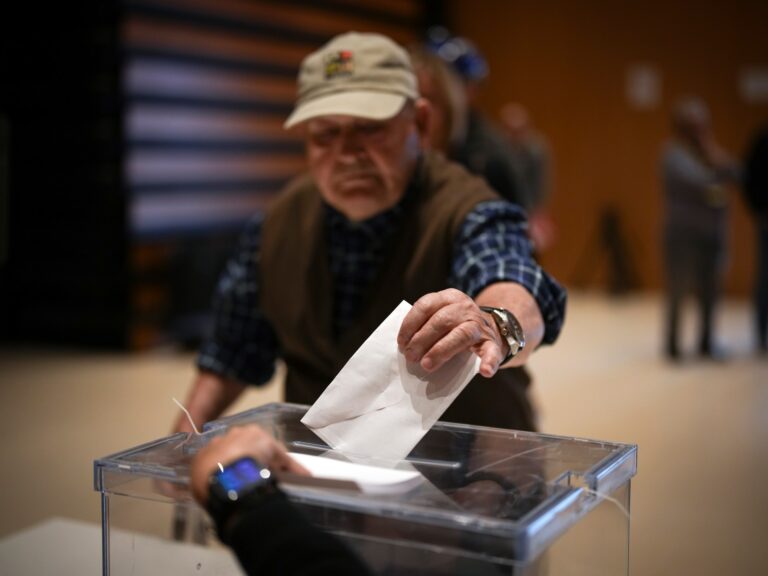Opinion polls suggest a comfortable lead for a candidate backed by socialist Prime Minister Pedro Sanchez.
Polling stations have opened in Catalonia in regional parliamentary elections whose outcome will impact Spanish national politics.
Sunday’s vote will be a test of the strength of separatist movement in the rich northeastern region of Spain and the policies of socialist Prime Minister Pedro Sanchez, who is trying to reconcile with the separatists.
More than 5.7 million voters are eligible to elect lawmakers in the Barcelona-based regional parliament.
Separatists have occupied the regional government for more than a decade. But polls and July’s national election show support for secession has declined somewhat since Carles Puigdemont, a former regional president, led an “illegal” separatist campaign in 2017.
Puigdemont has been evading Spanish laws since fleeing the country days after his failed secession attempt.
But that did not prevent him from running in this election while he is campaigning from the south of France. He said he would return to Spain when newly elected lawmakers meet to choose a regional president, after the elections.
By then, Puigdemont hopes to be free of any legal problems after the Spanish Parliament gives final approval to a bill. controversial amnesty for him and hundreds of other separatists.
The amnesty is part of Sanchez’s intense efforts to reduce tensions in Catalonia, which also include pardoning jailed leading separatists.
If voters do not validate this by supporting his Spanish Socialist Workers’ Party, it would be a blow to the leader who leads a minority coalition in Madrid.
Battle in a separatist camp
Sánchez campaigned alongside Salvador Illa, the Socialists’ candidate.
“We need a change on May 12 and only Salvador Illa can lead it,” Sánchez said at the socialists’ closing rally in Barcelona, asserting that only Illa can bring stability and improve the social climate in the region.
A victory for Sanchez’s Socialists would end a decade of separatist governments that have rocked Spanish politics and vindicate Sanchez’s conciliatory approach to the Catalans.
Illa won the most votes in the 2021 regional elections, but failed to prevent separatist Pere Aragones from forming a government.
Opinion polls now project a comfortable lead for Illa over Aragones’ Esquerra Republicana de Catalunya (ERC), or Catalonia’s Republican Left party, and the radical separatist Junts, or Together for Catalonia.
A new far-right pro-secession party called the Catalan Alliance, which denounces illegal immigration and the Spanish state, is also running and hopes to gain parliamentary representation.
A total of nine parties are in the running and none of them is expected to win enough votes to reach an absolute majority of 68 seats in the House. Reaching agreements will therefore be crucial.


